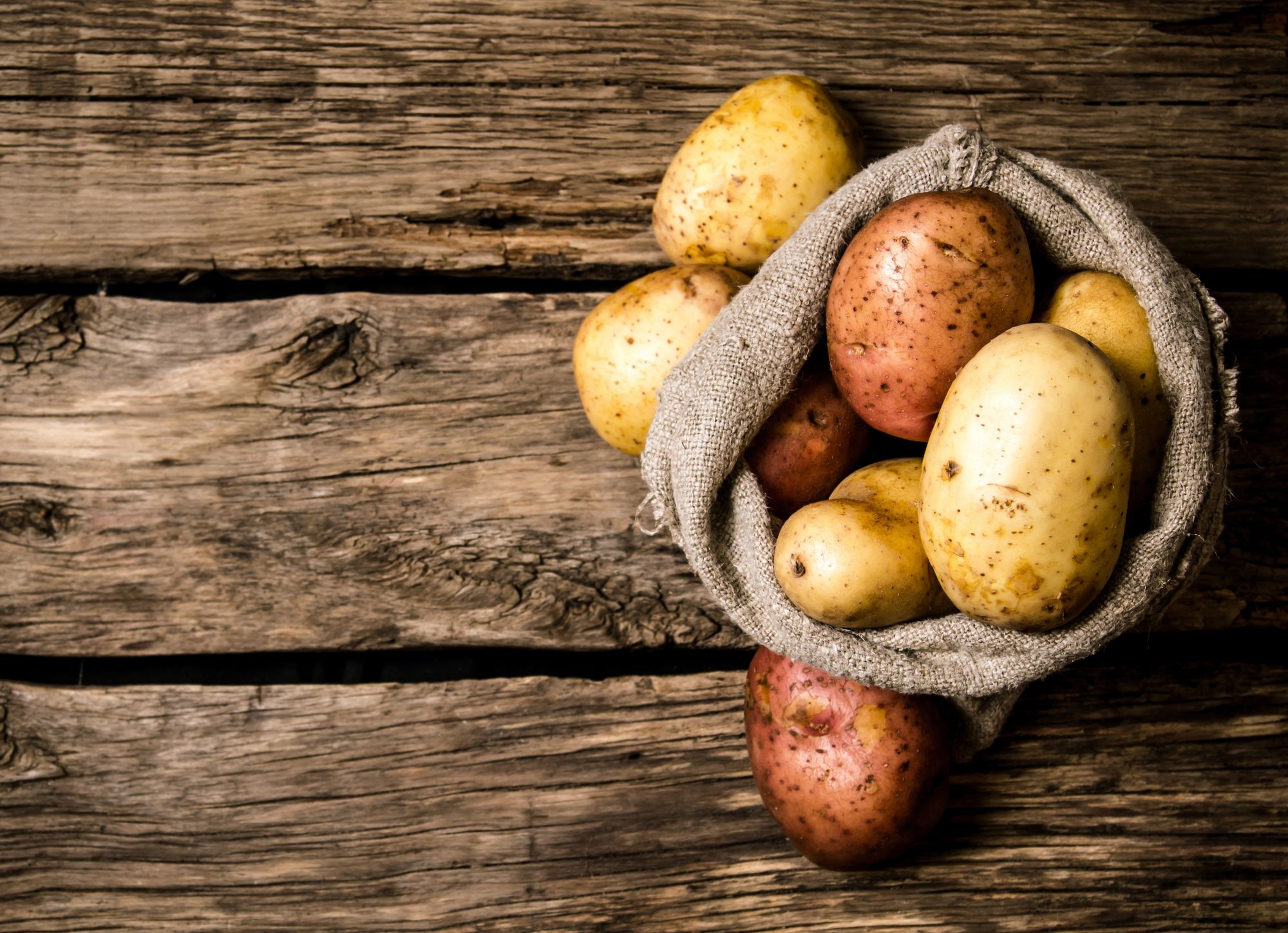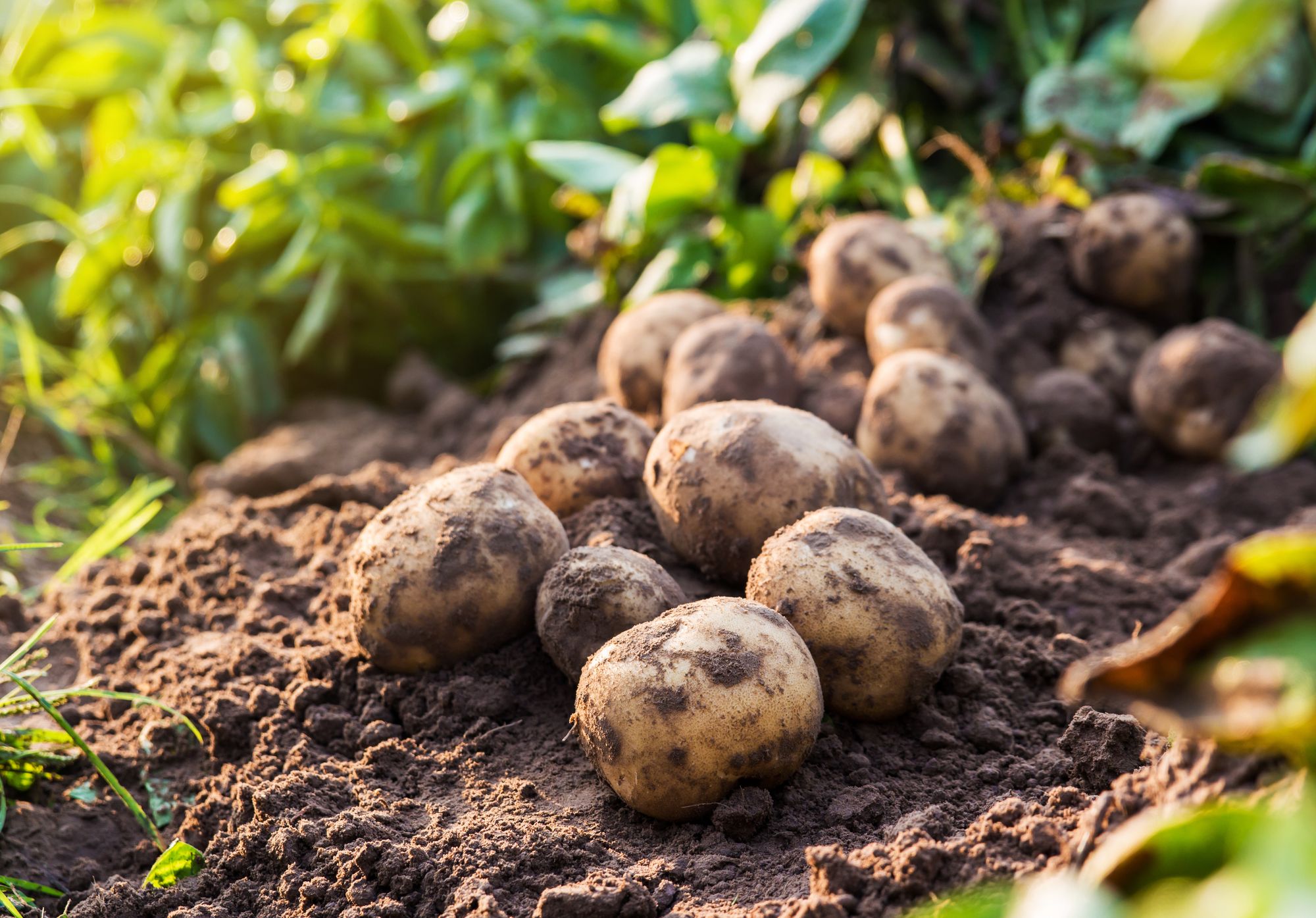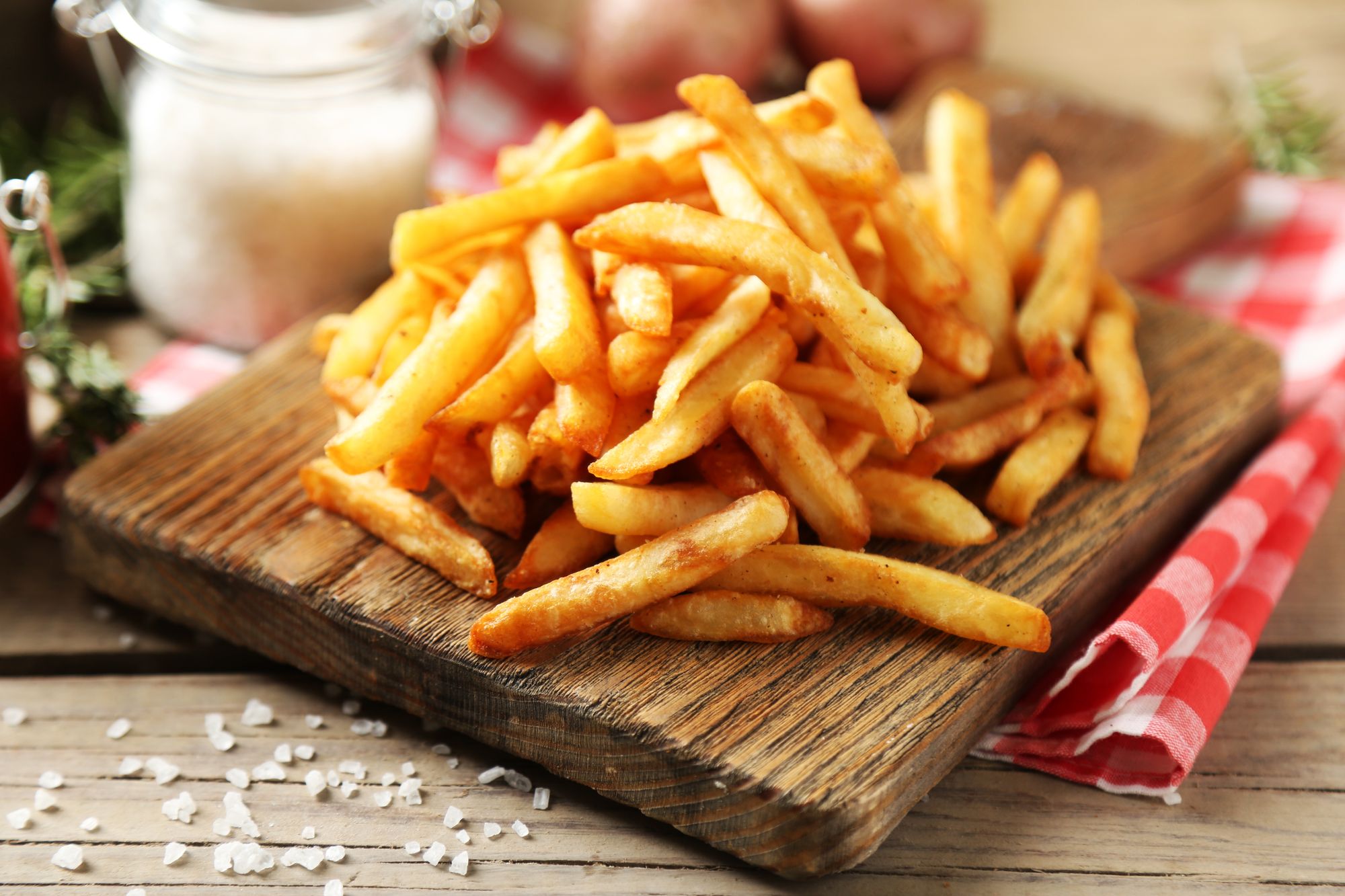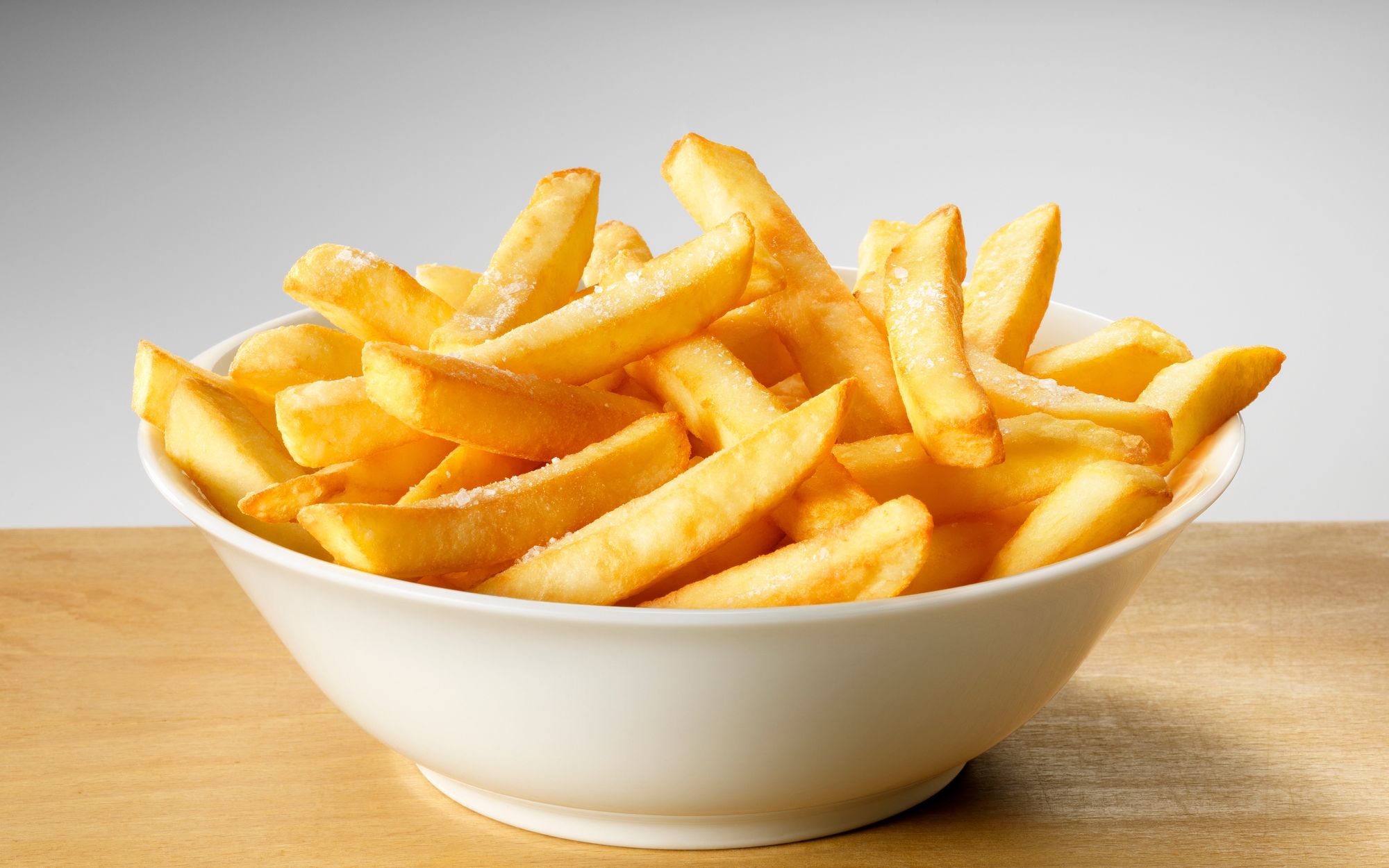Potatoes, the enigmatic vegetable, have sparked debates about their health benefits. On one hand, they are a rich source of essential vitamins, nutrients, and minerals, including complex carbohydrates, which contribute to overall well-being. However, they are also associated with indulgent yet unhealthy treats like French fries, tater tots, and potato chips. Furthermore, individuals seeking to limit their carbohydrate intake are often advised to avoid starchy varieties of potatoes.
In 2019, the United States consumed an average of nearly 110 pounds of potatoes per person, earning us the title of potato enthusiasts. Yet, despite our affinity for these starchy tubers, there is much we may not know about the relationship between potatoes and our health. While potatoes are often synonymous with "carbs," their reputation as a nutritious vegetable may be overshadowed by the knowledge that potato-based dishes, such as French fries, can contribute to cardiovascular issues when consumed excessively due to their high fat and salt content.
Curiosity compels us to delve deeper into the question of whether potatoes are a healthy choice or merely an unhealthy imposter masquerading as a vegetable. Join us on this journey to discover how consuming potatoes can potentially impact your body, and gain valuable insights into making informed decisions about your dietary habits.
Exploring the Nutritional Profile of Potatoes

When it comes to the nutritional content of potatoes, the data provided by the USDA sheds light on their composition. Considering a large potato, including the skin, here's a breakdown of its nourishing components:
- 284 calories
- 0.3 grams of fat
- 64.6 grams of carbohydrates (23.5% of the Daily Value)
- 7.8 grams of dietary fiber (27.7% of the Daily Value)
- 3 grams of sugar
- 7.6 grams of protein (15% of the Daily Value)
- Sodium content not specified
- 72.7 milligrams of vitamin C
- 1.1 milligrams of vitamin B6 (65% of the Daily Value)
- 44.3 milligrams of calcium (3.4% of the Daily Value)
- 3 milligrams of iron
- 85 milligrams of magnesium
- 1.1 milligrams of zinc
- 3.91 milligrams of niacin
- 1,570 milligrams of potassium (33.4% of the Daily Value)
- 1.5 micrograms of selenium
- 55.4 micrograms of folate
Likewise, a medium-sized potato weighing 213 grams, including the skin, contains approximately 164 calories. It provides 4.5 grams of fiber, fulfilling over 20% of your daily potassium requirements, 46% of your daily vitamin C needs, and 4.4 grams of plant-based protein. Alongside various other nutrients, it serves as a notable source of vitamin B6, supplying 37% of the Daily Value.
Dispelling the notion that sweet potatoes are inherently healthier, Amy Goodson, MS, RD, CSSD, LD, author of The Sports Nutrition Playbook and a member of our expert medical board, clarifies that white potatoes and sweet potatoes have comparable nutritional profiles. White potatoes are relatively higher in potassium content, while sweet potatoes owe their orange color to beta-carotene.
Now, let's delve into lesser-known facts about potatoes and their effects on the body.
1) Promoting Digestive Health:

Much like apples, potatoes provide a double-whammy punch of fiber, offering both soluble fiber from the potato itself and insoluble fiber from its skin. This unique combination of soluble and insoluble fiber makes potatoes a valuable ally in relieving constipation and promoting a healthy digestive system. So, the next time you find yourself feeling a bit backed up, consider reaching for a simple baked potato with its skin intact, as it can help alleviate uncomfortable symptoms and support regularity.
2) Gluten-Free Protein and Carb Source:

For individuals who are aware of their gluten intolerance or have been formally diagnosed with celiac disease, potatoes offer a fantastic solution to avoid the adverse effects of gluten on the digestive system. Not only are potatoes naturally gluten-free, but they also provide a substantial amount of satiating fiber and carbohydrates, which are essential for a well-rounded diet. As the Mayo Clinic explains, gluten is a protein found in wheat, barley, rye, and triticale. This means that while many breads and other starches might be off-limits when following a gluten-free diet, potatoes can serve as a delicious and naturally gluten-free alternative, providing a satisfying starch that can bring balance to your plate.
3) Improved Gut Health:

If you're looking to enhance your gut health, here's a fascinating tip: let your cooked potatoes cool down before consuming them. When you eat hot potatoes, the starches present in them are quickly digested into glucose, causing a rapid increase in blood sugar levels. However, when cooked potatoes are allowed to cool, their starches undergo a transformation known as type 3 resistant starch. This unique form of starch acts as a combination of soluble and insoluble fiber because it cannot be digested by the body. Instead, it moves into the large intestine, where it becomes a prebiotic, nourishing the beneficial bacteria in your gut. By feeding your gut microbiota, this resistant starch helps maintain a healthy gut microbiome, reducing the risk of developing various health conditions such as inflammation, irritable bowel syndrome (IBS), and even colon cancer.
4) Enhanced Satiety for Weight Loss:

When it comes to weight loss, potatoes can be a valuable asset. Despite being relatively low in calories, potatoes are highly filling due to their high water content, moderate fiber levels, and decent protein content. This combination of factors makes them a satisfying and satiating food choice. In fact, boiled potatoes have ranked the highest on the Satiety Index of Common Foods, outperforming other commonly consumed foods such as eggs, beans, steak, and fish. A study published in 2018 titled "Subjective Satiety Following Meals Incorporating Rice, Pasta, and Potato" compared participants' feelings of fullness after consuming meals containing these foods and found that people felt less hungry and more satisfied after meals with potatoes. So, if you're looking to shed some pounds or maintain a healthy weight, incorporating potatoes into your diet, when prepared in a health-conscious manner, can help you feel fuller for longer and support your weight loss efforts.
5) Energy Boost for Exercise:

Are you looking for a nutrient-rich source of carbohydrates to fuel your exercise routine? Look no further than the humble potato. A medium-sized potato provides the body with approximately 26 grams of complex carbohydrates, making it an excellent energy source for physical activity. Whether you're hitting the gym, going for a run, or engaging in any form of exercise, potatoes can offer the necessary fuel to power your workouts. It's important to note that opting for boiled or baked potatoes is the way to go to maximize their benefits and avoid unnecessary additions that can diminish their health advantages.
6) Blood Sugar Considerations:

Like any carbohydrate-rich food, consuming potatoes can cause a rise in blood sugar levels. Prolonged elevated blood sugar can lead to health issues such as prediabetes, insulin resistance, and type 2 diabetes. While it's true that fried potatoes, like French fries or chips, can increase the risk of these conditions when consumed regularly, it's essential to recognize that healthy carbohydrates like oatmeal, brown rice, and whole grain bread can have similar effects. The key lies in the pairing of carbohydrates with a source of lean protein, such as lean beef, chicken, fish, or eggs. Protein aids in slowing down the digestion process, effectively flattening the blood sugar curve and preventing drastic spikes.
7) Weight Gain Factors:

Potatoes themselves are not inherently high in calories. However, the way they are prepared and the portion sizes consumed can significantly impact their potential to contribute to weight gain. For example, dishes like butter-based potatoes au gratin, which often include breadcrumbs, cheddar cheese, and milk, can be relatively high in calories and saturated fat. Similarly, regularly consuming French fries has been associated with weight gain. In fact, a study published in The American Journal of Clinical Nutrition in 2007 found a direct link between the consumption of fried foods like French fries and obesity. It's worth noting that ordering a large portion of French fries alongside a fast-food entrée can turn your lunch into a 1,000+ calorie affair.
8) Cognitive Effects of Fried Potatoes:

The impact of potatoes on brain health primarily depends on the cooking method employed. Deep-fried potatoes and other fried foods have been linked to weakening focus, increased memory impairment, and elevated inflammatory responses in the brain. A study published in the Journal of Nutritional Science demonstrated that individuals who consumed the most fried foods had the lowest scores on tests measuring memory and cognition. It is evident that the negative cognitive effects are more closely associated with foods that are deep-fried, similar to those high in added sugars. Choosing healthier cooking techniques when preparing potatoes can help mitigate potential adverse effects on memory and cognition.
9) Skin Aging Considerations:

It's time to shine a light on the effects of fried potatoes on skin health. The high-temperature oil required for frying potatoes and other foods can lead to the production of harmful compounds called advanced glycation end products (AGEs). These AGEs can accumulate in the body as we age, potentially causing cellular damage and inflammation. As a result, the skin's inflammatory response may become evident through visible signs of weakened skin elasticity, including wrinkles, puffiness, and acne. While it's clear that removing the skin from potatoes and deep-frying them is not the healthiest way to consume them, there are alternatives. For instance, leaving the skin on your potatoes and opting for healthier cooking methods like air frying or oven roasting can help minimize the production of AGEs and promote healthier skin.
By being mindful of preparation methods, portion sizes, and incorporating a variety of nutrient-dense foods into your diet, you can enjoy the benefits of potatoes while minimizing potential risks.

